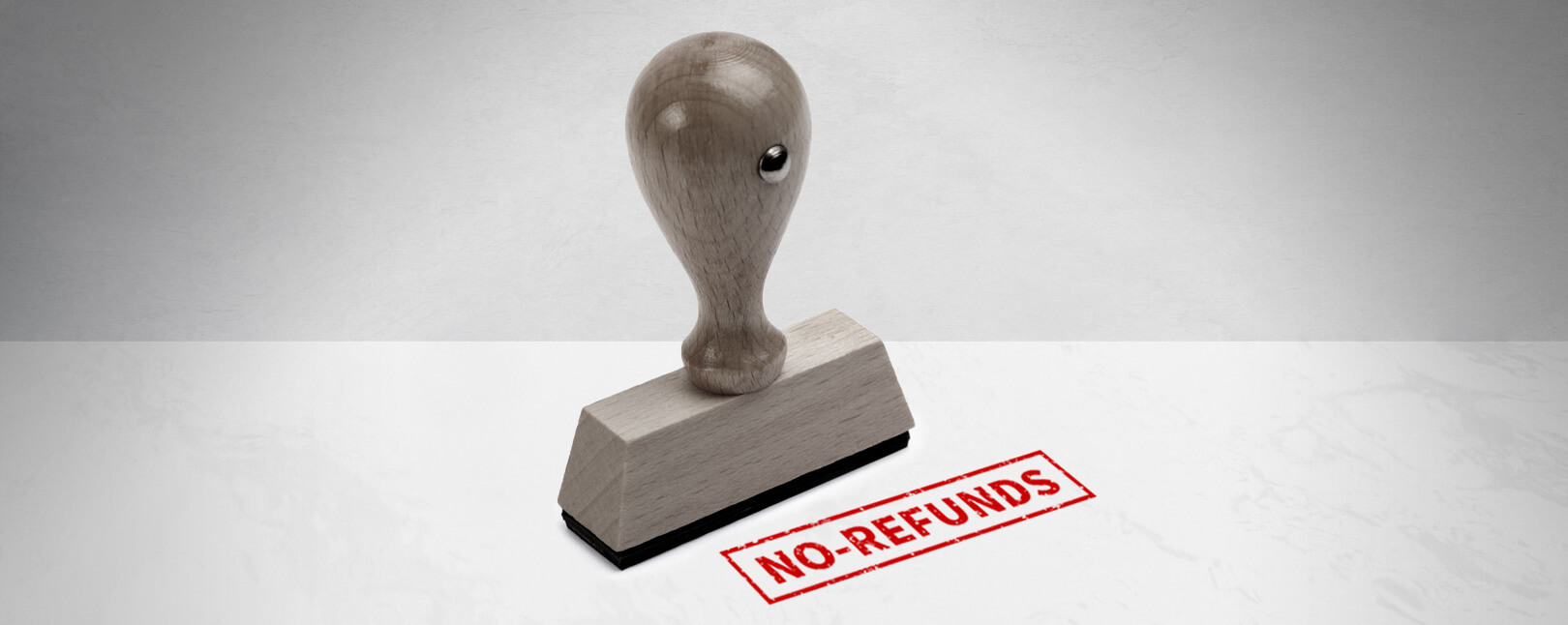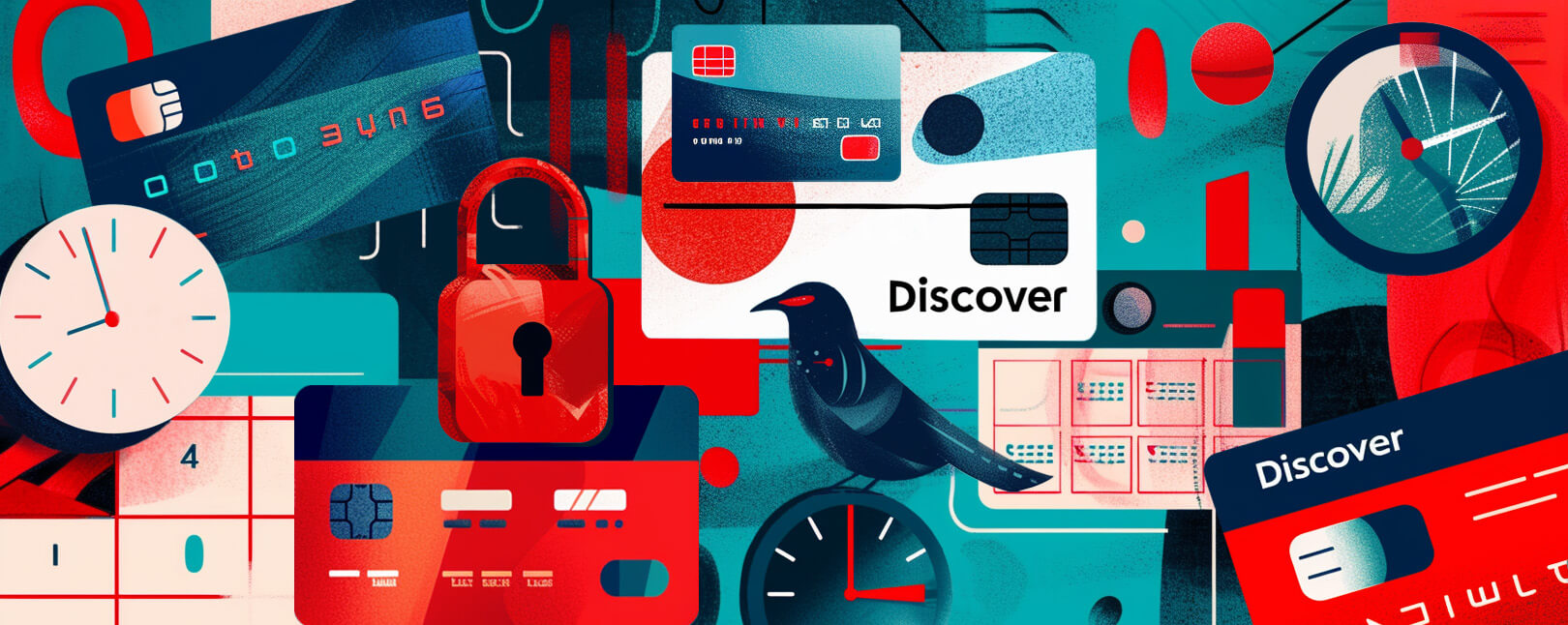Can Cardholders File a Chargeback on Credit Card Deposits?
Many industries, such as travel and lodging, commonly have contracts that require the consumer to pay a certain amount ahead of time to insure reservations on services. If the customer breaks the contract for some reason, the deposit may not be returned. This raises a question: can a cardholder file a chargeback on non-refundable deposits?
The answer can vary based on different factors. However, it almost always comes down to your published return policy.
What is a Non-Refundable Deposit?
Most consumers believe that every purchase automatically includes the right to a full refund. This is generally true for most purchases. However, merchants do have the right to set their own policies, which may include a “no-refund” clause on part—or all—of the transaction amount.
Your return policy might clearly state that you don’t offer refunds under some circumstances. In some cases, such as intimate apparel, you could be required to have such a policy for health and safety reasons. In other instances, you may choose to specify “no returns” only for certain purchases, like clearance items.
What about pre-orders for product, though, like custom or tailored items? Or services airline tickets and hotel stays? It’s common practice to require deposits for these, and those deposits are generally non-refundable. So, if a trip was canceled through no fault of the cardholder, you are not necessarily under any obligation to return the deposit amount.
Are You Seeing Too Many Chargebacks for Non-Refundable Deposits?
We can take ALL chargebacks off your plate. Click to learn more.

Customers may not agree with your policy, though. They may wonder, “Can I dispute a non-refundable charge?” In this case, the cardholder might turn to a chargeback on credit card deposit to skirt your refund policy and recover their funds.
Chargebacks Have Limitations
Card networks created elaborate chargeback regulations designed to protect the rights of all parties in the payment process. Unfortunately, complex procedures often create more uncertainty than clarity. So, before getting too far into the specifics of a deposit chargeback, it's beneficial to understand the limitations of the chargeback process.
Simply put, chargebacks were designed to protect cardholders. They should only apply when the cardholder has a genuine complaint, though, and exhausted all other means of resolution.
[Tweet "Friendly fraud is a dangerous consumer behavior. It allows the cardholder to get an unwarranted bank-issued refund at the merchant’s expense."]The cardholder would be entitled to a dispute if you engaged in fraudulent behavior and refused a refund even though the customer was entitled to one according to your policies. They may also be entitled to a dispute if you made some error during processing. Either of these circumstances could validate the cardholder’s claim and warrant a chargeback.
A far more likely cause, however, is cardholder abuse of the chargeback process. Friendly fraud is a dangerous consumer behavior. It allows the cardholder to get an unwarranted bank-issued refund at the merchant’s expense.
Customers might experience buyer’s remorse and cancel a reservation, for instance, yet still want to recover their deposit. These buyers could file a chargeback on non-refundable deposits to try and get their money back.
Can Cardholders Dispute a Non-Refundable Charge?
So, can cardholders file a chargeback on credit card deposits? Yes, they can.
As with any chargeback, the cardholder has the right to dispute a transaction if there is a valid claim. Valid claims to file a chargeback on credit card deposits include:
- The cardholder never signed or authorized a non-refundable deposit.
- The merchant is unable or refuses to provide products or services related to this deposit.
- Services or products provided, related to the deposit charged, totaled a transaction value less than the deposit amount.
- The cardholder was promised a refund for this initial deposit, but it was not processed.
- The deposit was not credited toward the final purchase of the goods or services, for which this deposit pertained.
In each of these scenarios, you can clearly see that any breach of contract would be on your side. If the customer breaks the contract in some way—not showing up at the agreed-upon date and time, for example—you are not liable.
What about circumstances that are beyond the control of either party, though? A cancelled flight, for example, or an evacuation due to a hurricane? That might depend on your refund policy.
Your No-Refund Policy Parameters
We cannot stress this enough: you need to make your refund policies clear and concise. You need to post them in multiple places on your website, on printed and electronic versions of invoices, and on sales receipts. Basically, wherever they will be seen by customers.
The more accessible your policy is, the easier it will be to demonstrate that the cardholder knew about it beforehand. Also, explain what part of the refund or deposit is non-refundable, and any circumstances that could prevent (or allow) a refund.
Finally, most contracts of this type also include a clause about “force majeure” or “acts of God” that stipulates you are not responsible for extraordinary events that prevent you from completing a contract. Many of these events are already well-defined, such as extreme weather, earthquakes, or war. Other circumstances may be open to interpretation, and therefore possibly valid reason for a chargeback. This was put to the test during the COVID-19 pandemic: a natural event, but one so widespread that many merchants and corporations relaxed all or part of their refund policies for a time.
In response, it’s important to consider whether to add an option for transferring deposits in the event of a potential issue. For example, let’s say you’re an air carrier, and you need to cancel a flight due to inclement weather. It could be a good idea to let cardholder transfer their deposit to a different flight. This would help prevent the risk of a chargeback on credit card deposits.
Deposit Chargeback Representment
As we noted above, you should accept any chargebacks filed due to an error on your part. However, if the cardholder is trying to circumvent your policies or is otherwise engaging in friendly fraud, you can—and should—contest the dispute through representment.
The evidence you’ll need to fight these chargebacks varies depending on the card brand and the reason code used. Check with your bank or refer to network guides on compelling evidence. In most cases, you will simply need documentation to validate that the customer had access to your refund policy.
A chargeback on credit card deposits can be straightforward. However, customer disputes and friendly fraud from many other sources can threaten your businesses. Minimizing risk is a detailed, complex task, but we can help. Our end-to-end service platform prevents more chargebacks, wins more reversals, and maximizes your ROI. For details on our services, contact Chargebacks911® today.
FAQs
Can you dispute a non-refundable charge?
Yes. Cardholders have the right to dispute a transaction, as long as there is a valid claim.
What if a cardholder files a chargeback on credit card deposits?
If the cardholder is trying to circumvent your policies or is otherwise engaging in friendly fraud, you can contest the dispute through representment. In most cases, you will simply need documentation to validate that the customer had ready access to your refund policy.
Is the merchant liable for deposits lost to “acts of God”?
That depends on your posted refund policy, and in some cases, a ruling that the event in question falls under that category.











